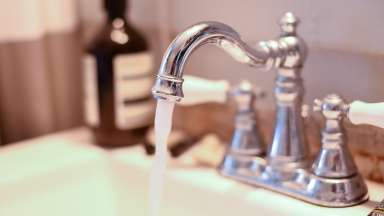Test Kit Notice
We are working diligently to process all of the requests. Currently, we have a backlog of requests. We are estimating 5-10 business days before you receive your test kit.
Once your sample is collected and picked up, it will take another 14 business days to receive your results.
We are actively soliciting additional resources to improve these times. We value your patience during this period.
Helpful Links
Safety Standards
We care about the health and safety of our community. Read below to learn more about the EPA’s Lead & Copper Rule Revision and what Raleigh Water is doing to keep you safe.
How to Check Your Water Service Line
In compliance with the U.S. Environmental Protection Agency’s (EPA) Lead and Copper Rule Revision (LCRR), Raleigh Water is taking steps to ensure the safety of our water supply.
Raleigh Water customers can trust that their tap water continues to meet rigorous Environmental Protection Agency (EPA) standards, including new regulations aimed at reducing lead and copper contamination in public water systems. Importantly, Raleigh Water has no known lead service lines.
To further enhance water safety, the EPA recently updated the Lead and Copper Rule. These new regulations will strengthen drinking water standards nationwide, accelerate the replacement of lead service lines, and minimize the risk of contamination.
Raleigh Water records indicate that no lead services have been found in our water system.
You can access our most recent annual Water Quality Report on this page to learn about our comprehensive water testing.
What Raleigh Water is Doing
- Inventorying Service Lines: We are actively identifying and mapping our service lines to ensure we meet the new EPA requirements.
- Optimizing Corrosion Control: Our advanced corrosion control program, which includes pH adjustments and the use of specialized compounds, helps prevent lead and copper from leaching into the water supply.
- Regular Water Testing: We conduct regular water quality tests to monitor for contaminants and maintain the highest standards of water safety.
The primary source of lead and copper in tap water is the customer’s plumbing. Older infrastructure, including lead service lines or lead solder in copper pipes, can cause lead to leach into the water through corrosion.
The longer water stands in the pipes when not in use (for example, overnight or over a weekend), the higher the lead concentration is likely to become. If present, elevated levels of lead can cause serious health problems, especially for pregnant women and young children.
Tips to Minimize Lead Exposure
Keep your family safe from lead: Easy tips for clean water
- Flush the faucet: Run cold water for 5 minutes before using it for drinking or cooking, especially if the water hasn't been used for more than 6 hours. You can use this flushed water for plants or dishes to save water.
- Cold is best: Always use cold water for drinking, cooking, and making baby formula. Hot water dissolves more lead.
- Filter option: Consider using a water filter certified to remove lead (NSF 53-certified). Check www.nsf.org for approved filters.
- Clean the faucet: Regularly remove and clean the screens on your faucets to remove any lead particles.
By taking these proactive measures, Raleigh Water is committed to providing safe, high-quality water for our community.
Helpful Links
Lead Test Kits Available
Raleigh Water customers may request a free kit to test for lead in their drinking water though this link: Lead Test Request .
We are working diligently to process all of the requests. Currently, we have a backlog of requests. We are estimating 5-10 business days before you receive your test kit.
Once your sample is collected and picked up, please allow up to 14 days for your results to be available. You will be notified via email once they are ready. If we do not have an email address on file for you, we will mail you a paper copy.
Once your sampling kit arrives, please follow the instructions carefully. Improper sampling, like using non-recommended locations, can lead to inaccurate results. Here's a helpful video from the EPA to guide you through the process and ensure accurate data.
We are actively soliciting additional resources to improve these times. We value your patience during this period.
Since 2014, we have only had four samples out of the thousands tested that exceeded the action level. Action level is defined as the level of concentration of a harmful or toxic substance or contaminant. The action level for lead is currently 15 PPB.
We are invested in testing the water at your home. We will provide you with a sampling kit as soon as possible.
The website below has additional information about lead in your drinking water.
Lead Copper Rule Revision Project Map Tool
Use the leadCAST portal (below) to see if the service line material at your property has been identified. Enter your address in the search field located in the upper right and press enter; leadCAST will highlight your property on the map and display the Utility Side Material (city-owned) and Private Side Material (customer-owned) to the left of the map.
The Utility Side Material (city-owned) is the responsibility of the City of Raleigh. We are working on plans to identify and replace any lead service lines and some galvanized steel lines that require replacement.
